It is October 27 and I arrive the 44 Military Hospital, Kaduna, where I had travelled to — from Lagos the previous day — to spend my birthday. An indescribable feeling of excitement overtakes me as I am welcomed by Johnson Nwibani, STANDING ON HIS TWO LEGS.
Simple, isn’t it, that a man stands on his feet to welcome his friend? Not that simple, in this case.
It was something Nwibani had been unable to do for more than four years. If you didn’t meet Nwibani when I introduced him to the world in June 2016, I’m glad to re-present an abridged version of his story.
SHOT IN THE LEG BY BOKO HARAM
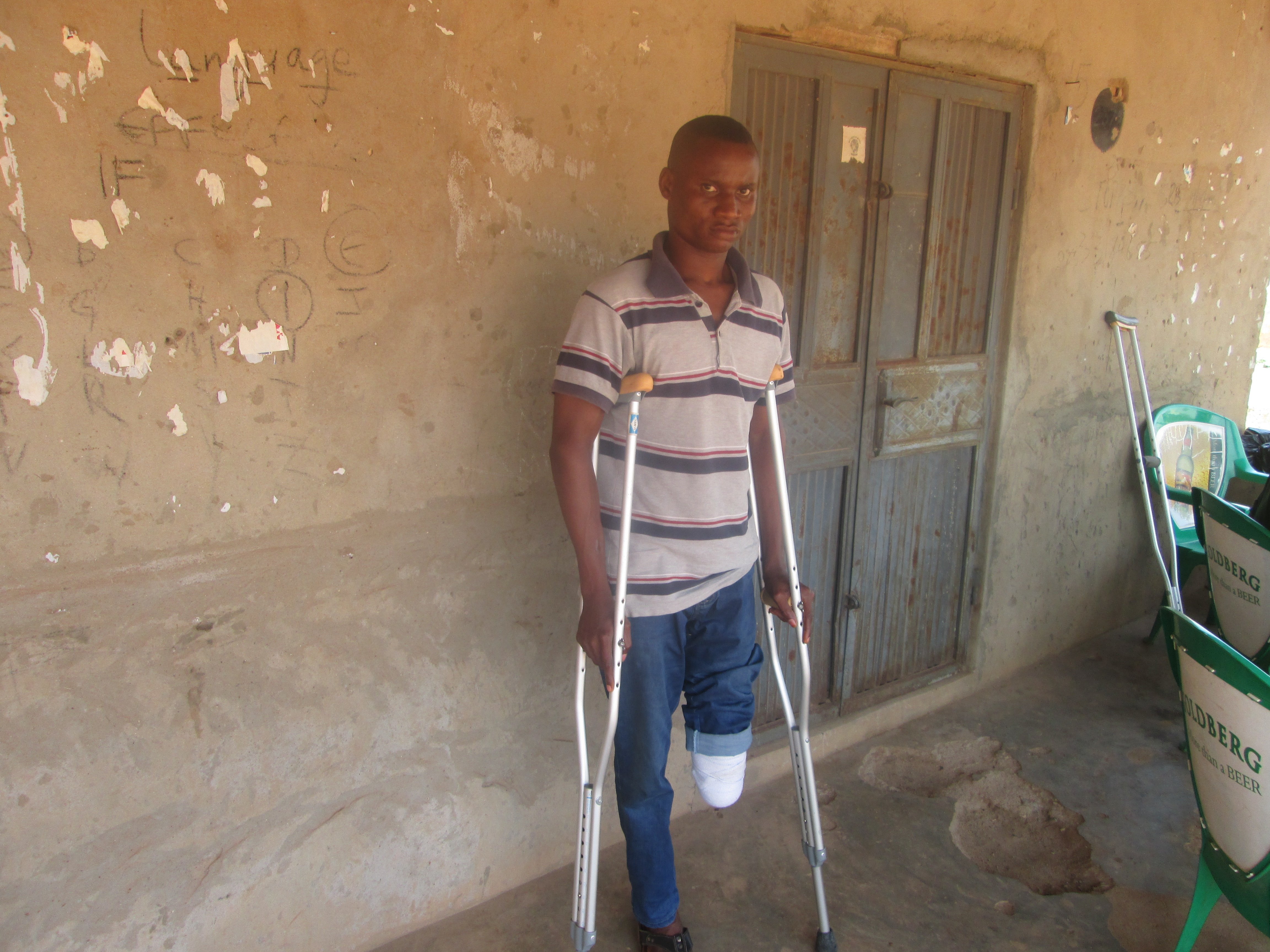
This soldier was shot by Boko Haram in his left leg and arm, in Gombe state, in October 2012. He fought back to at least drive his assailants away, but he would eventually slip into coma. At the Federal Medical Centre (FMC), Gombe state, where he was rushed to in an Armoured Personnel Carrier (APC) — much to the chagrin of his superior — it was thought that he would die. Yet he lived.
Advertisement
It took him only four days at FMC Gombe to know his crushed leg deserved better.
“They were not dressing my wound well,” he said back in May. “My leg was so poorly and infrequently dressed that maggots started to enter. The sight of maggots in my leg made me inconsolable.”
That leg would later be amputated, after the army had promised him a prosthesis that he never got — well, he got one; only that it was unsuited to his needs and it hurt his knees. It caused him so much pains that he eventually threw it away.
Advertisement
ENTER ‘FORGOTTEN SOLDIERS’
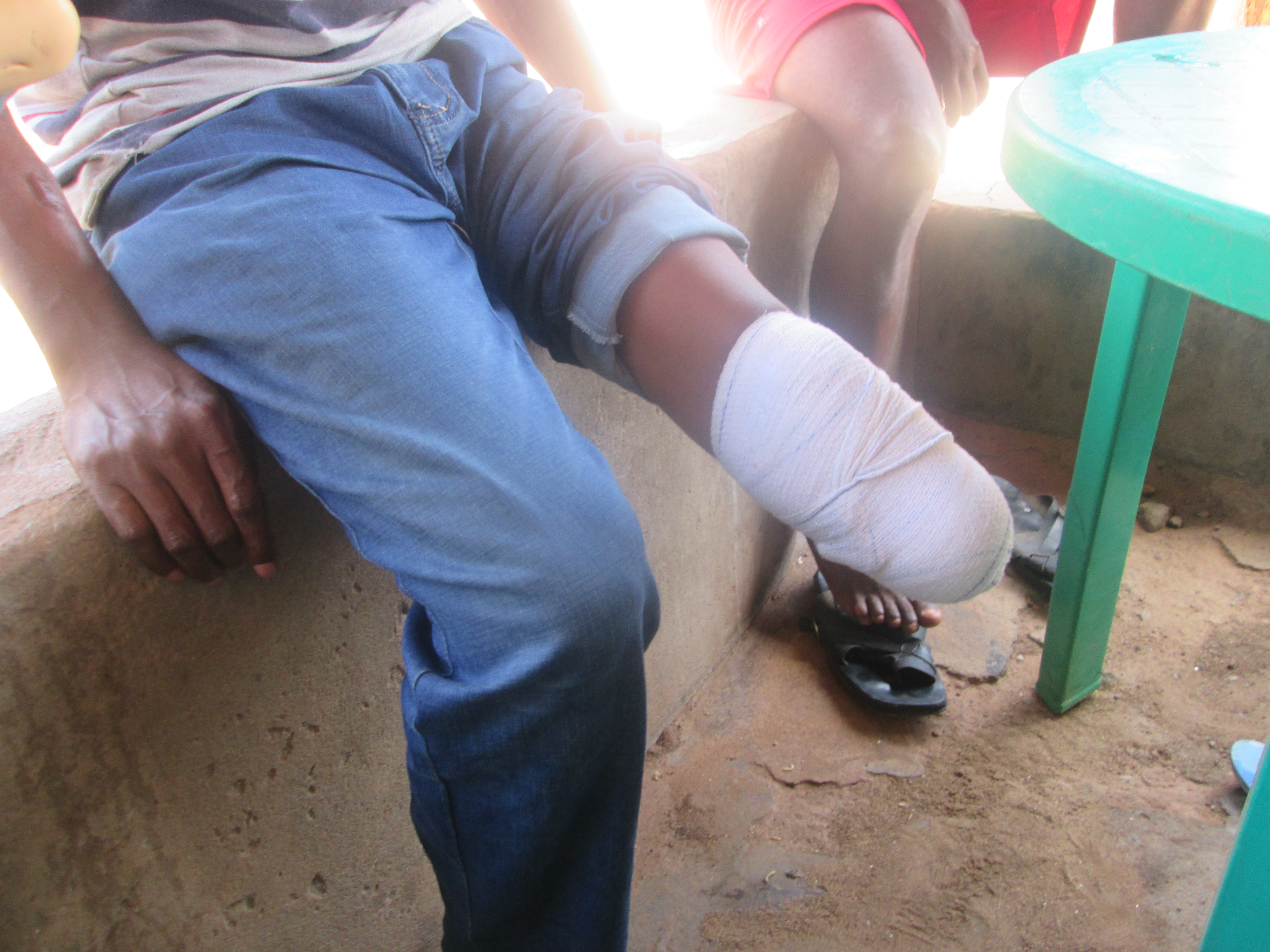 For 44 months, Nwibani had begged the army fruitlessly for original prosthesis — until May when TheCable, with the support of the International Centre for Investigative Reporting (ICIR), stepped in with an undercover investigation that initially irked the army but has yielded a positive result.
For 44 months, Nwibani had begged the army fruitlessly for original prosthesis — until May when TheCable, with the support of the International Centre for Investigative Reporting (ICIR), stepped in with an undercover investigation that initially irked the army but has yielded a positive result.
At the time, Sani Usman, spokesman of the army, dismissed Nwibani as “just being obstinate” because he didn’t travel abroad for treatment on the bills of the army.
“For the avoidance of doubt, no fewer than 17 officers and soldiers of the Nigerian Army were issued with prosthesis including Gunner Nwibani Sorborinor, the soldier they interviewed,” Usman had said in a rejoinder.
“The soldier in question was just being unnecessarily obstinate simply because he was not taken to India for treatment unlike the others. This is not deliberate because as at that time, India could not grant visa to the injured soldiers for some inexplicable reasons hence to locally source for solution which turned out to be more apt and most appropriate.”
Advertisement
FINALLY, A BEFITTING PROSTHESIS
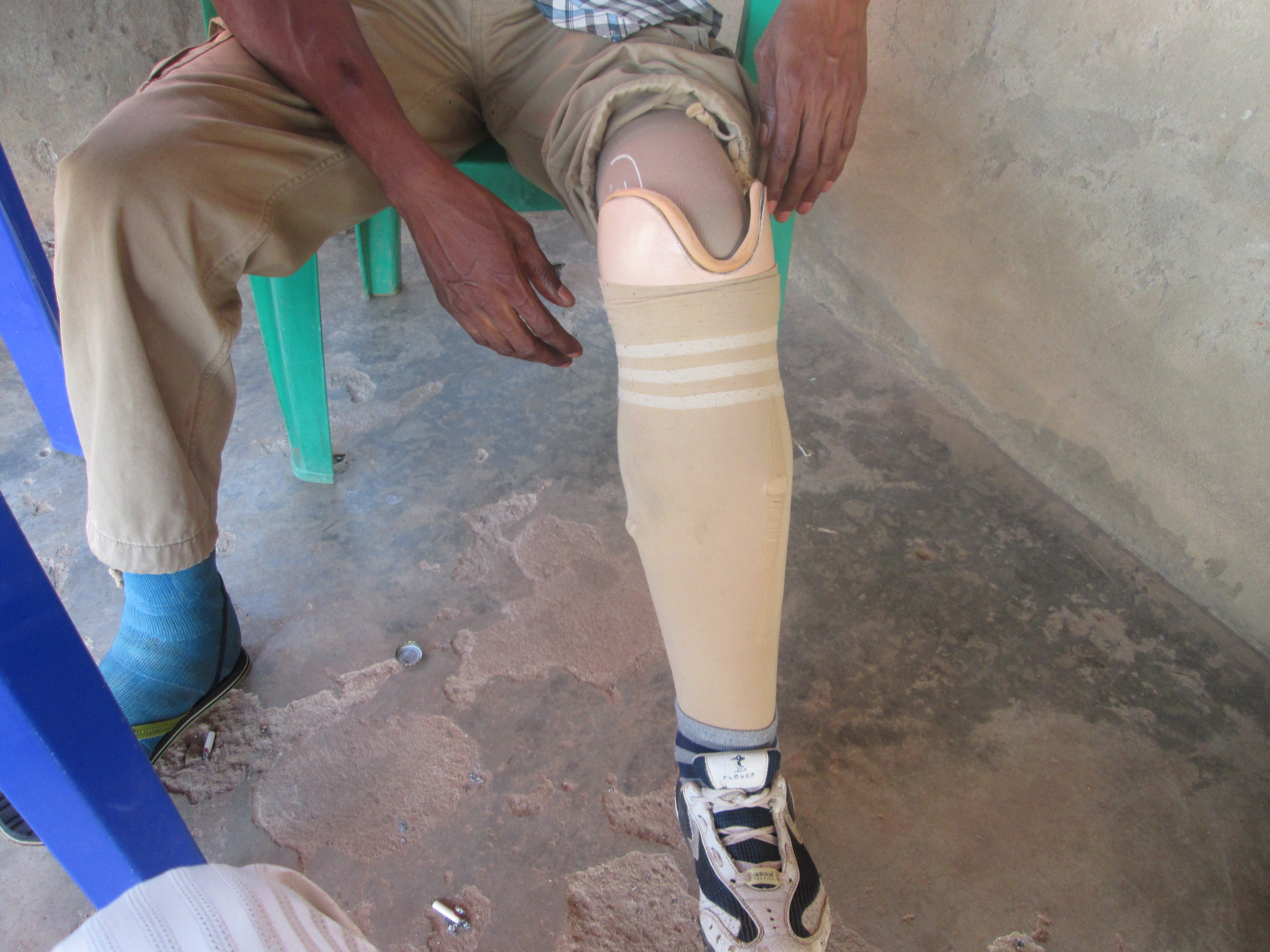
Everyone at the army, though, appeared to take Nwibani seriously after the story.
“This prosthesis came from the army headquarters. I complained as I had been doing, and the army provided this for me in August,” Nwibani says as he prepares to walk with his perfectly-fitting artificial leg.
“Before, when I kept on telling them that the one I got was bad, they thought I was joking. But they eventually understood that I was serious. An Indian brought this for me, and even told me that I could alert him if I experienced any discomfort with it.”
For helping him back to his feet, he says “everyone at the army headquarters and at the 44 Military Hospital” deserves plaudit.
Advertisement
“The army tried; I thank them,” he says.
“I am very appreciative of what the army has done for me, for listening to my request.
Advertisement
“Please help me thank everyone at the army, especially the corps commander and the chief of army staff. I am doing what I am supposed to do with the leg; I’m very happy.”
Advertisement
He adds: “I want you to thank government for me, for their efforts, for the way they have worked for me.
“They have tried their best. There is nothing else that they could have done other than to give me this artificial leg.
Advertisement
“The only thing is that I can’t do any serious work, other than to just walk. I can’t carry heavy load, and I can’t run; I’m still dangling because an artificial leg cannot be the same as your original leg.”
AT LEAST SIX SOLDIERS TREATED AND DISCHARGED
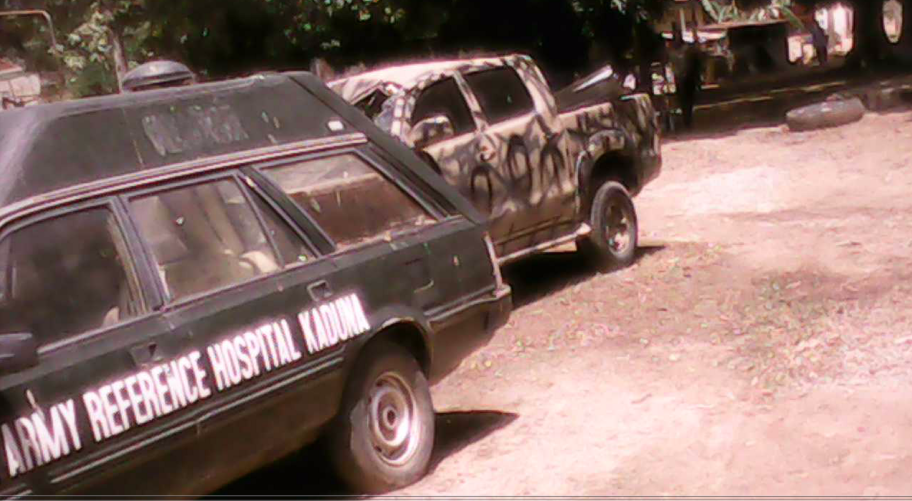 A second soldier — one of the many who opted to remain anonymous in TheCable’s ‘Forgotten Soldiers’ series — confirms that the army expedited the treatment of “at least six injured soldiers” after the story was published.
A second soldier — one of the many who opted to remain anonymous in TheCable’s ‘Forgotten Soldiers’ series — confirms that the army expedited the treatment of “at least six injured soldiers” after the story was published.
But it wasn’t all gloom; the army was as angry in its confrontation with injured soldiers as it was in its official response to the series.
“Apart from questioning the motive of the medium, it is pertinent to state that most of narrations were outright falsehood and calculated attempt to cause disaffection amongst personnel and create an impression that they care about the well being of troops more than the Nigerian Army, the government and the nation…,” the army had said in May.
“No country would tolerate the attitude of subversive elements such as the ICIR and its partner medium, The Cable, especially at the very critical national security situation. They want to demoralize and instigate the soldiers to reverse the gains made in the fight against terrorism and insurgency.
“Some of the stories being narrated by the medium could better be described as orchestrated campaign of calumny, otherwise how else could one describe their fabrication about the alleged abandonment of a soldier by his imaginary commander as stated in one of their narrations? It is therefore safe to conclude that ICIR and The Cable have embarked on yet another round of subversive activities in order to portray the Nigerian Army and the nation as uncaring.
“This is in an effort to score cheap popularity or create an aura of a professional investigative journalists for themselves. They are far from that, rather they are bunch of fifth columnists that enhance the work of crisis merchants and terrorists.”
NOTHING BUT THE TRUTH
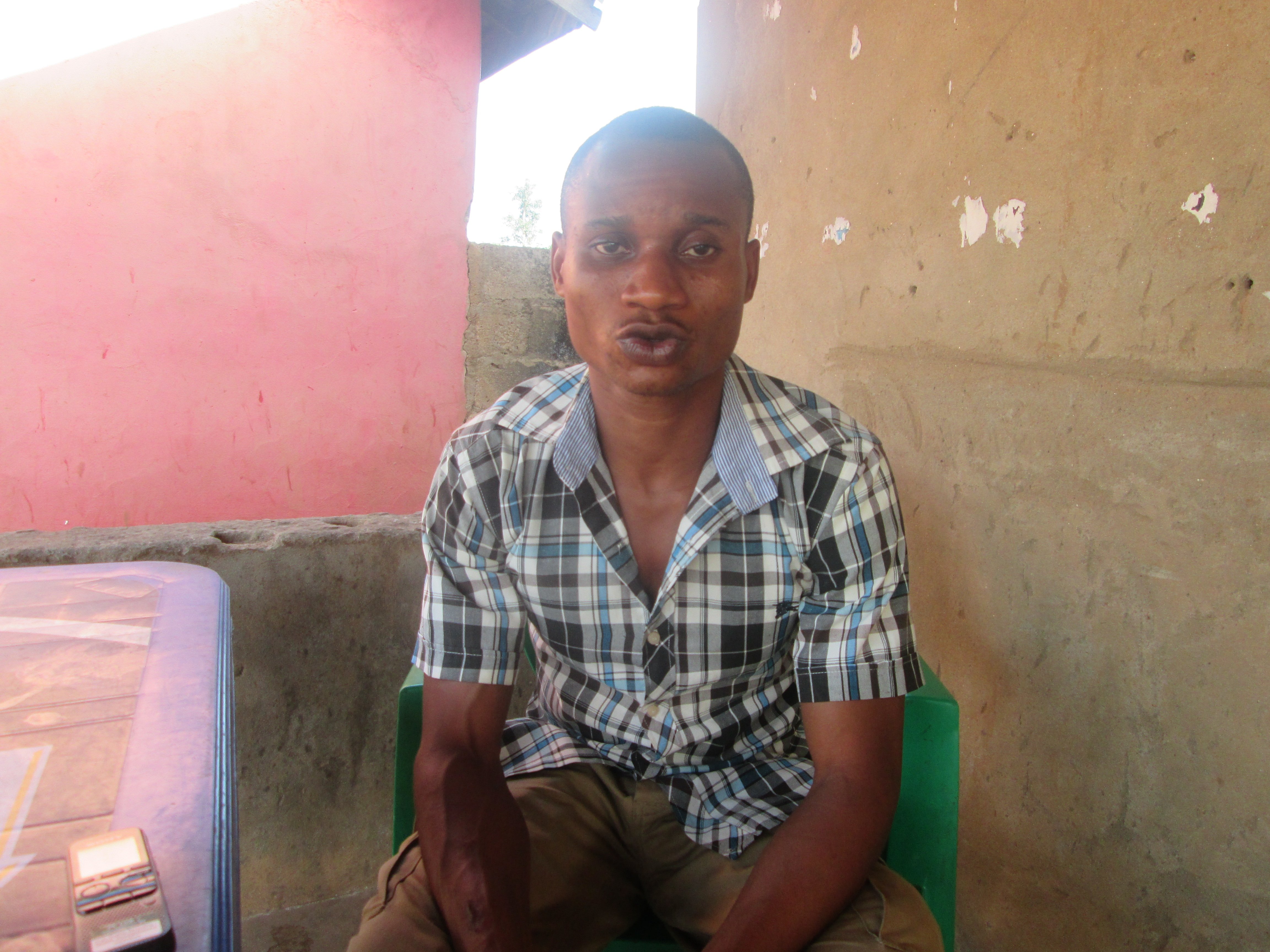
After releasing the statement, the army took care to investigate the revelations in the story, the soldier says.
“After the write-up, the authorities came up, they said that soldiers were sending their names and pictures to the media and allowing journalists have access to them,” says the soldier, who again asked not to be named.
“But they made their own investigations, and they found out that the whole thing that was written was the truth.
“Some of our soldiers let them know that they have brothers and sisters who are not okay with the treatment on display at the hospital, just for serving their country, losing their arms and legs only to be abandoned at the hospital while the Chibok girls are receiving treatment and Boko Haram are receiving amnesty. Meanwhile, soldiers that have died, their widows are nowhere to be found. Even we who are injured, nobody cares about our feelings.”
By his account, among the soldiers who received accelerated treatment were “a guy called ‘Virus’, who has received prosthesis and has been discharged”.
“After the write-up, the GOC of 7 Div came to see soldiers at the 44 Hospital, and he said the treatment fare for soldiers had been released. Meanwhile, we were told that it had not been released. But the man said treatment money for first and second quarters of the year had been released,” he continues.
“After he left, we saw an influx of doctors at the hospital; they checked the different conditions of the soldiers and looked out for the ones they could handle. Some of these soldiers are receiving treatment now, but most of them have been treated and already discharged.”
MORE CAN STILL BE DONE
Not all the dispatched cases ended in a happy ending, he would add, citing the case of “a few soldiers” who were moved to India, only for the Indian doctors to reject them “because there was such gap between the time of injury and the time of travel that the injuries had aggravated”.
“They said it was too late to treat them; most of the soldiers were ejected and they are back in the country,” says the soldier, whose own case had still not been attended to due to the severity and complexity of the injuries he suffered on the battlefield.
“Nobody is interested in going abroad. If what we need is in Zaria, they should get it for us; and if it is not available in Zaria, then they should take whatever step in making sure that soldiers access treatment wherever possible.”
Prompt treatment of soldiers is not a matter that should even be up for discussion, he insists, saying: “We served this country so we deserve the best. Unfortunately, we are the most neglected.”
2 comments

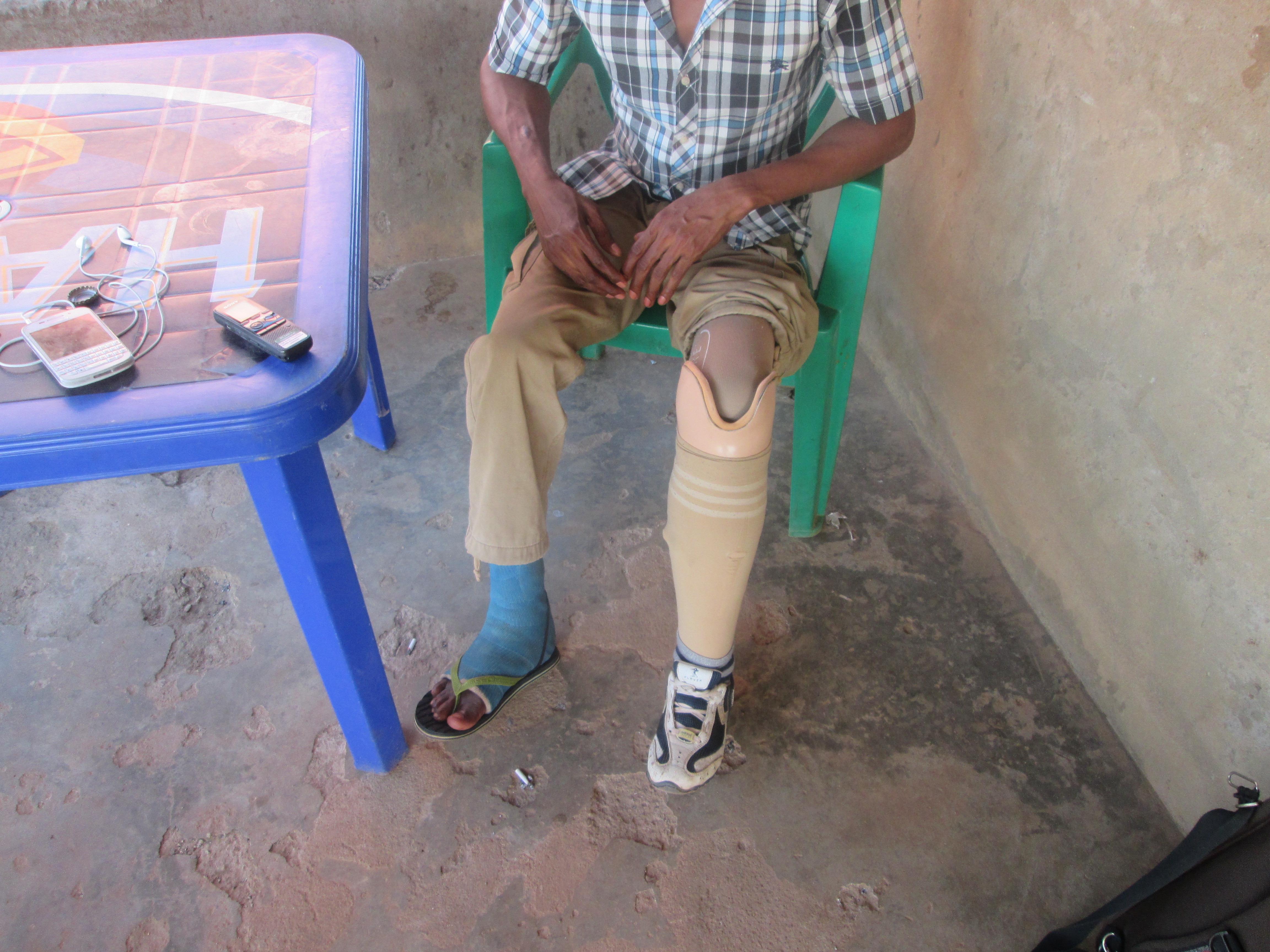
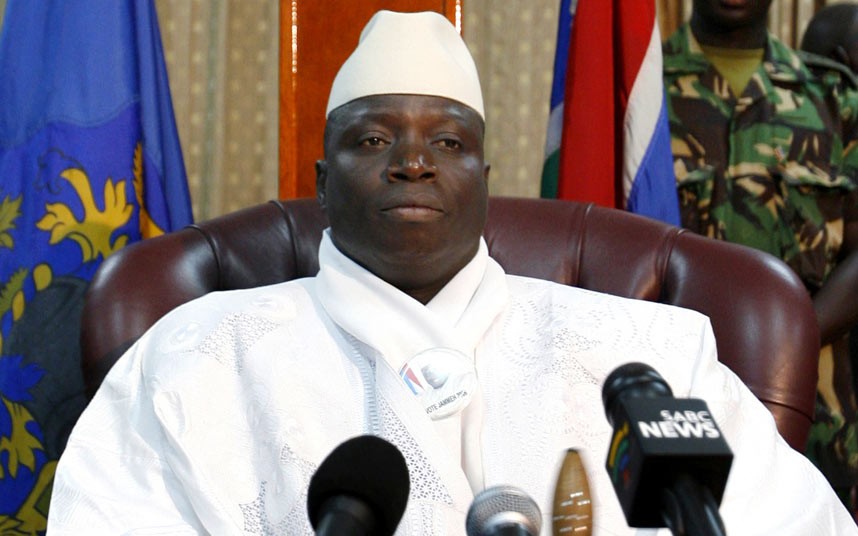
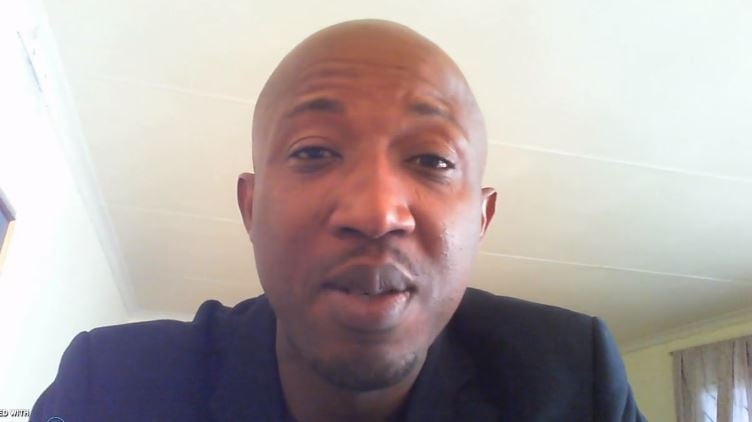

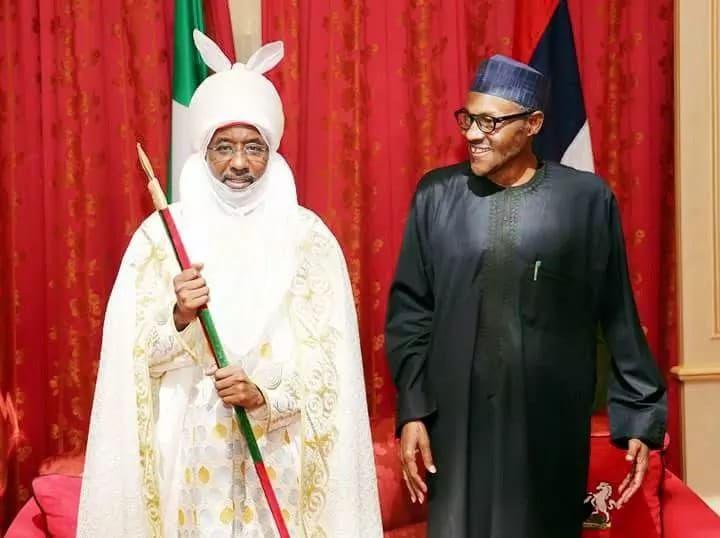
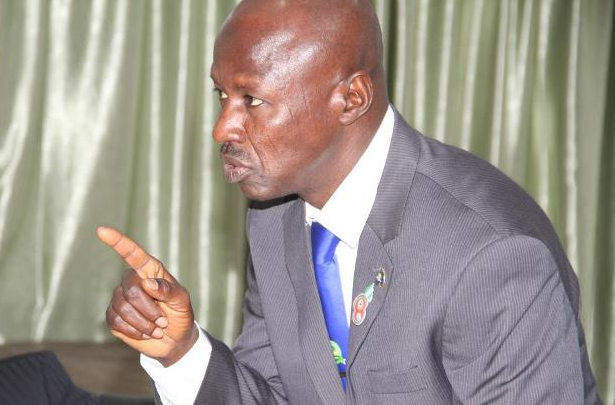

Your comment..Sad, so sad. That’s Nigeria for u. Those ones in the office would be speaking big big grammar to defend their negligence and insensibility.
this is what they should have done since not until this time glory be to God u re still alive let them take care of u until u die not to be abandoned at any stage of this ur life of help need if they’ll please God n meks u comfortable they should give u gud attention until u die cos u re a hero let ur promotion come rrgularly